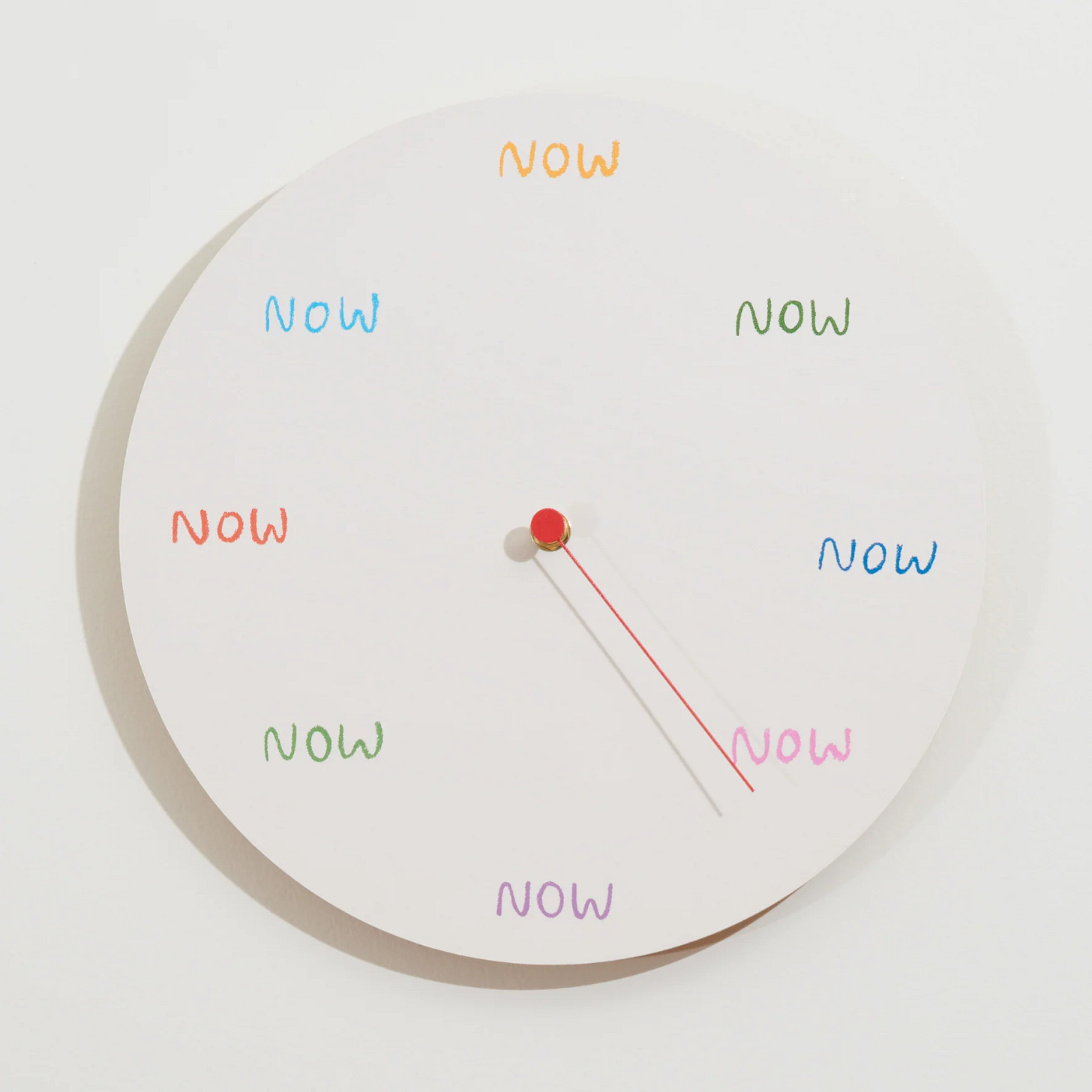The scene you have...not been writing. Strategies for getting back into the writing.
Today we will write.

Hi,
Your encouraging writer friend here.
Today’s guest contributor is the insightful and multi-talented writer Daisy Hernández. Daisy has written two of my favorite books, A Cup of Water Under My Bed and The Kissing Bug, which won the PEN/Jean Stein Book Award. I asked Daisy what keeps her focused and engaged in her writing.
Encouraging words from Daisy Hernández:
I have creative accountability partners. We check in weekly for 30 minutes to report what we're working on, what is proving difficult and what we're hoping to do in the coming week. And we provide each other with reflections. So when I'm bogged down in what's not working on a microscopic level (like this entire new chapter sucks!), my creative accountability partner can see the big picture and encourage me. Sometimes I just need to be reminded that I've been stuck before and that free writing for ten minutes helped.
One part of my practice that really works for me is from the author Sandra Cisneros. She said that writer's block is just fear so she suggested writing, “I am afraid to say that....” and finish the sentence. Then repeat. She didn't say to keep doing this until you're exhausted or hit a kernel of truth but that's what happens for me!
Working on my first book, I kept myself motivated in several ways most of which revolved around community because I do best when I'm connected to others. So I joined a BIPOC writer's group to share work. Everyone in the group happened to be a journalist, and we would meet, snack, read each other's work and give feedback on the spot. I had a friend, Linda González who organized writing days at her house. We would gather, write in silence, break for lunch and to share, then write in the afternoon and share excerpts at the end of the day. I felt like I had to keep going because here were all these wonderful people waiting for me to finish!
All that said, when working on a first book, I say: let it take the time that it needs to take. It's your first one. There will never be another first book. If the book wants 7 years or 17 years or 27 years, let the book have its time with you. You don't know what magical things are being worked out inside of you while you're crafting that first book.
Community. Accountability. Not rushing. Take the time the book needs. I love what she says here, You don't know what magical things are being worked out inside of you while you're crafting that first book. I hope you view this newsletter as a place to help set your weekly intentions. And if you feel so inclined, you are welcome to use the comments to name those intentions. We are rooting for you.
Your Writing Prompt
Today I invite you to write a scene.
If you are in the middle of a project: write a scene you’ve been avoiding. I’m going to set the intention of writing an Easter egg hunt scene that I made notes about forever ago, little pebbles of dialogue and images.
If you are just starting out or feel like noodling around: write a new scene, any scene. What is a scene? What does it need? I don’t want to over-direct you and your writing. I’ve seen amazing scenes of just dialogue. There are also moving scenes using all the tools we usually think of in a scene, like interiority, setting, characters, action or a request, dialogue, and spectacularly specific details. [All of these things I’ll get into more throughout the series of newsletters.]
But for today: Maybe start with at least two people in a particular place. Just be curious about what you can see and hear and sense and feel in the room or field or grocery store or wherever your scene takes place. See what happens when the characters get to talking or notice one another or notice something in the world or hear a song or read a book. Describe some non-human things in the scene, too.
At some point, let someone else appear. They don't need to comment on the scene or the people you’ve been describing. In fact, it is so pleasurable when the new person is just there, doing their own thing, living in their own thoughts outside of the story. I really love this moment in “Hills Like White Elephants” or this moment I thought happened in that story, when we dip just for a second into the consciousness of the bartender. In my memory, Hemingway wrote something like “He wasn’t thinking about that. He was thinking about a horse.” It was strange and lovely. Also, it never happened. I looked back at that text to check this and Hemingway never had the bartender talk about a horse! But it WOULD have been strange and lovely, so I guess I’m also recommending writing the strangeness you’d have loved to see in other stories you’ve read?
Go a bit erstwhile in your scene. Another kind of lovely erstwhile is when the narrator withholds aspects of the scene with purpose. We can see this strategy in Myriam Gurba’s MEAN. At a crisis point in the book and a critical moment in the particular scene, the narrator, a version of Gurba, halts the scene and says, “And the rest of the details belong to me” (Gurba, 119).
Sometimes your resistance might be telling you something important to follow.
Gurba’s text illustrates how sometimes it might be better to NOT write that scene in the level of visceral detail you or your character experienced. Instead of describing the kind of event you do not want to recollect and recreate the jarring disruptive details, another strategy you can try is to intentionally move on. Gurba announces this, stops the scene, and moves on. To me, it did not seem cagey. Instead, Gurba seems to be setting a necessary boundary at a time in the story when the narrator was experiencing things that were out of their control.
A scene is a story in miniature. Is that true? I think it might be. A way to test a scene might be to see if you have the kind of narrative arc you are hoping to achieve in the story as a whole through the miniature of the scene. Emphasis on the kind of narrative arc you are hoping to achieve b/c we are not all hoping for the same kind of structure. I love the question Jane Alison invites us to consider in Meander, Spiral, Explode. What about the fiddlehead fern as a narrative structure? Or arcs, waves, spirals or radials? The explosive structure, the cell structure, the network, or the fractal?
Why do we avoid writing certain scenes?
Now that I have the Easter scene sketched, I don’t want to write it. Had I had the time to write it then, when it occurred to me, perhaps I would have carried the thoughts and questions of the scene to fruition, and the scene would be done, but I’m not sure this is true. I remember when I sketched the scene it was a weekend in early spring last year and my two young children were doing young children things, saying, “Watch this!” and “Let’s go on a bike ride,” and, most frequently, “Wipe my butt!” I was thinking of this book in the short moments of walking to the park, doing the dishes, small times when my children were quiet and happy and in their own interiority, too. I can't time travel back and write the full scene then, so I have to reenergize myself to write the scene now. Also, I can’t find some of the notes in some unorganized Notes file on my phone and I’m sad about this loss, but I have to let that go, too.
The reasons for scene avoidance can vary. Sometimes we avoid the emotionally complicated moments that we just don’t want to feel, which is a valid reason for avoiding writing a scene. Sometimes we think we know what the scene is about and so we aren’t excited to write it anymore. Or maybe we fear we don’t have the capacity to write it. Or sometimes it is a bit of all of those things.
I’ve written the notes about the scene–bits of dialogue, gestures, location, a few observations, key characters, and a final bit of dialogue that furthers how the characters and hopefully readers, too, come to view one character. It seems I have all I need to write the scene. I know where it will go. And that, actually, is the problem. I know where it will go. There is, I’ve told myself, incorrectly, no mystery left, nothing left to discover in the writing. Now that I’ve sketched the notes, it feels like I’ve already written it. But I haven’t.
This can also happen with novel ideas. We get to talking about our novel project too much before we’ve written much and suddenly it's like we’ve written it, so much so that we start to feel the balloon of that writing air let out with a whoosh.
What if we feel a loss of energy for a scene or a project, but we know we still need to write it?
We need a counter-narrative, one that tells us that we still have more to learn in the writing. That we have not yet discovered all there is to discover in that scene or in that book we have not finished writing.
When you are avoiding something in the writing, try recognizing what story you’re telling yourself about it like It's dumb, or It's too complicated, or perhaps my most frequent one: I’m not a good enough writer to do this. Then give yourself a counterstory. You are welcome to try these I’m trying on, too: Every writer feels this way. The only way over this problem is through it. It will get better. Just follow the sentences and let them lead. Your scene will get better, and your writing will get better, just by coming to this scene you are avoiding gently, with love and patience. There is more to learn there, in that scene, in that story.
Today, let’s write, not in a strong-armed way, but gently, because the story needs it and we know that something we are avoiding is not insurmountable. There is much to learn about this scene you are still writing and you will learn it as you write. Bit by bit. Word by word.
You are good enough to write this story.
And anyway, you are just noodling around. Just playing. Tossing words in the air and catching some. You don’t have to show it to anyone right now. It’s just for you. Let’s see what happens.
May your scene be a fiddlehead fern, unfurling. May your sentences rise up with breath and patience and love.
-TS
You are reading Today You Will Write, weekly words of writing encouragement, multi-genre prompts, and craft glow-ups from TaraShea Nesbit. You can subscribe here or give a gift subscription here. Twenty-five percent of the proceeds go to non-profit organizations. This semester's donation will go to The Gathering Place in Denver, a drop-in center for women, transgender folx and children who are experiencing poverty and/or who are unhoused, so that they may find respite and resources.




